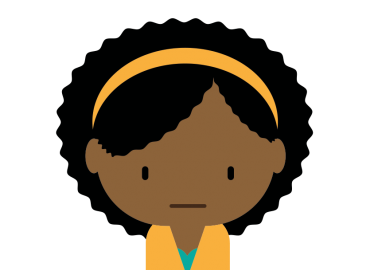Luke O'Plakia
Expand the elements to view the case or download a printable version with the big orange button!
You are an FY1 working in paediatric outpatients. Your next patient is Luke, a 14 year old boy who is attending clinic with his dad, Graham. He was referred by his GP with leg pain which has been ongoing and worsening for a couple of months.
Please take a history from Luke and perform an appropriate examination. You will then be asked to provide a summary of the case, present a differential diagnosis and discuss aspects of the case with the examiner.
You are Luke, a 14 year old boy in year 9 at school. You went with your dad to see the GP because you’ve been having leg pain which has been getting worse for about 2-3 months and you’re now struggling to walk.
HPC: You don’t know exactly when it started; you just noticed you were getting pains at the top of your left leg and into your groin. You figured you’d just pulled something playing football although you can’t really remember a specific injury. You’ve tried your best to ignore it, but it hasn’t gone away. If anything it’s been getting worse and you’ve been taking paracetamol regularly most days but it’s not really helping much. In the last couple of weeks you’ve found it difficult to move your leg at all because of the pain and you’re struggling to walk. That’s why you ended up going to the GP – because your mum, dad and even the teachers had noticed the limp and you thought you better get it checked out.
PMH: You’re usually fit and well. Your mum says you were in hospital when you were a couple of months old with “broncholitis” or something, but you don’t exactly what happened. You’re up to date with all of your jabs. You haven’t been unwell at all otherwise and the leg pain is the only thing that’s been bothering you.
FH: Your grandad died of a heart attack when you were 4. You don’t know of anyone else in the family who is ill.
DH: You don’t take anything regular, but have been taking pain killers recently. You’re not allergic to anything that you know of.
SH: Your mum and dad split up when you were 12, but they still get on well. You live with your dad and your little brother Max, who is 10, and stay with your mum most weekends. Dad is a manager in an office, and mum is a hairdresser and runs her own salon. You’re getting on alright in school and you’re about to pick your GCSE options. You’re pretty good at maths and chemistry but you can’t wait to drop history because it’s boring.
ICE: You’re still pretty sure you’ve just pulled a muscle or something, but you are a bit worried that it’s been getting worse not better. Mostly you’re really annoyed that you’ve not been able to do PE or keep up with football your training; you tried but were finding it really difficult so you’ve not been for a few weeks. You got “a bit chubby” in puberty and had started losing weight when you joined a football team with your best mate and were training regularly, so you’re worried that not being able to exercise is going to make you put weight back on.
Please observe the student taking a history from Luke (and Graham if present). The student should engage both the child and parent, taking a full history and eliciting their ideas, concerns and expectations. They should perform an examination of the hip joint including observing gait. A pGALS could also be performed. The student should be aware/observing for the patient complaining of pain during the examination and should make reasonable adjustments for this if it is the case.
Please ask the student to summarise the case, examination findings and suggest differential diagnoses.
An example of a good differential diagnosis would be similar to:
“My primary differential diagnosis is a slipped upper femoral epiphysis (SUFE), as this most often affects boys between the ages of 10-15. Luke, although now losing weight, does report having been overweight, which is a recognised risk factor for SUFE. Another possible diagnosis would be juvenile idiopathic arthritis affecting the hip joint, although Luke does not describe joint swelling or any of the systemic symptoms which are often associated with this. It is also important to rule out septic arthritis due to the significant consequences of this condition, however Luke is not systemically unwell so this is less likely as a diagnosis”
Points for discussion: • Initial investigations – how might you differentiate between SUFE and JIA? • How is a SUFE managed? • What are the possible complications of a SUFE? • How would you manage a patient with septic arthritis? • What differentials would you consider more likely if Luke was a younger child?





